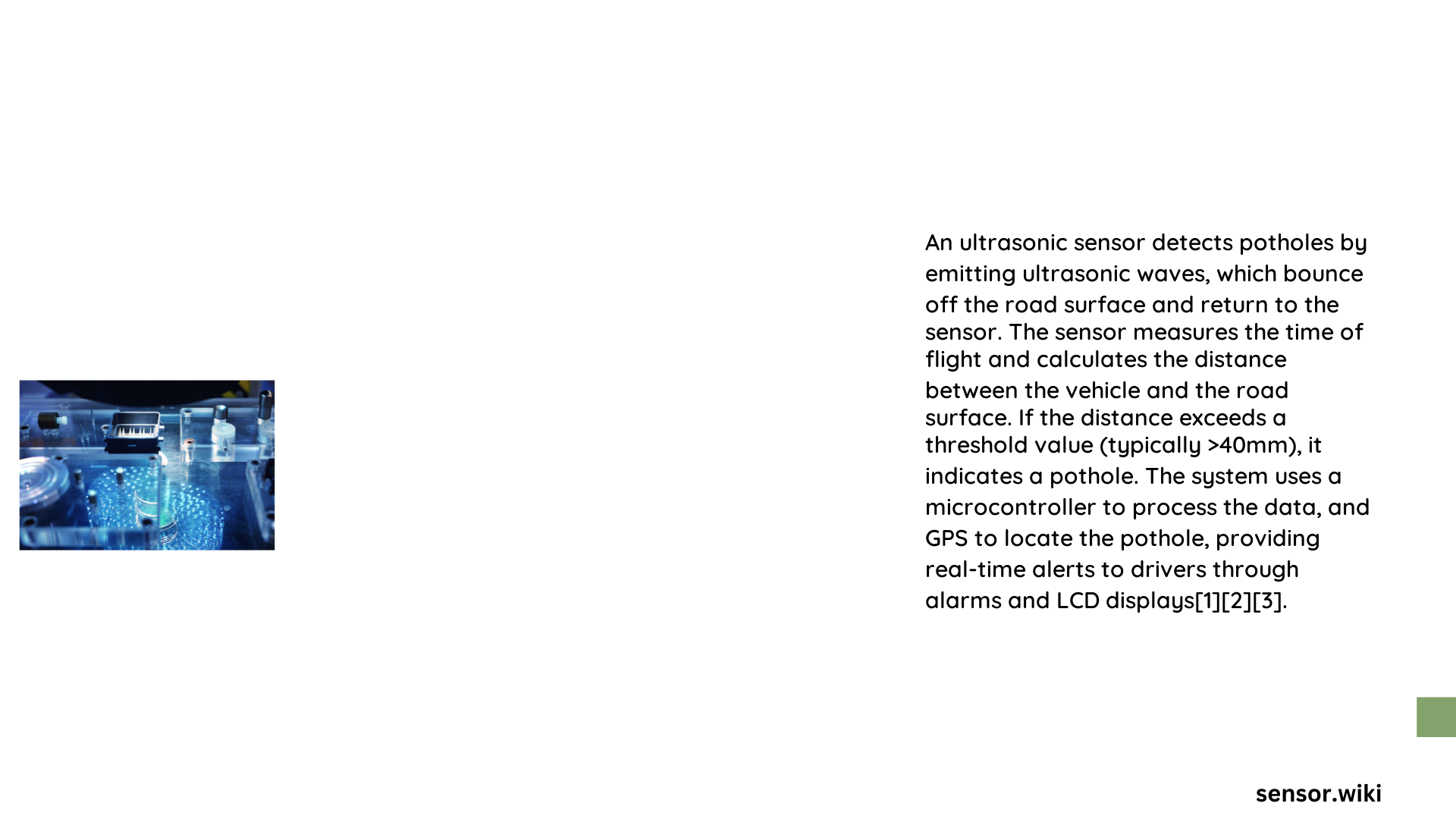Ultrasonic sensors represent a groundbreaking technological solution for detecting road surface irregularities, specifically potholes. By emitting high-frequency sound waves and analyzing their reflections, these sophisticated sensors can accurately map road conditions, providing critical data for transportation infrastructure management and vehicle safety systems.
What Makes Ultrasonic Sensors Effective for Pothole Detection?
Ultrasonic sensors leverage sound wave technology to create precise measurements of road surfaces. These sensors emit high-frequency sound waves that bounce off road surfaces, capturing minute variations in terrain and identifying potential road damage.
Key Technical Characteristics of Ultrasonic Sensors
| Sensor Parameter | Specification |
|---|---|
| Detection Range | 2 cm – 4 meters |
| Frequency | 40 kHz |
| Precision | ±3 mm |
| Sensing Angle | 15-30 degrees |
How Do Ultrasonic Sensors Identify Potholes?
Ultrasonic sensors employ sophisticated algorithms to differentiate between normal road surfaces and potential potholes:
- Baseline Measurement: Establish a standard road surface profile
- Continuous Scanning: Real-time surface monitoring
- Distance Calculation: Compare current surface against baseline
- Anomaly Detection: Identify variations exceeding predefined thresholds
What Technical Components Support Pothole Detection?

Successful pothole detection requires integration of multiple technological components:
- Sensor Hardware: HC-SR04 ultrasonic sensor
- Microcontroller: Arduino or similar processing unit
- Data Analysis Software: Advanced algorithmic processing
- GPS Module: Location tracking and mapping
What Are the Performance Metrics of Ultrasonic Sensors?
Performance metrics demonstrate the reliability of ultrasonic sensors in pothole detection:
- Accuracy: 95-98% detection rate
- Response Time: Less than 50 milliseconds
- Environmental Adaptability: Functional across various weather conditions
What Cost Considerations Exist for Ultrasonic Pothole Detection?
| Cost Category | Estimated Range |
|---|---|
| Sensor Unit | $5 – $15 |
| Installation | $50 – $100 |
| Annual Maintenance | $10 – $20 |
| Software License | $50 – $100 |
What Challenges Do Ultrasonic Sensors Face?
While highly effective, ultrasonic sensors encounter some limitations:
- Environmental Interference: Humidity and temperature variations
- Surface Complexity: Highly irregular road surfaces
- Angle Sensitivity: Precise mounting requirements
What Future Developments Are Anticipated?
Emerging trends in ultrasonic sensor technology include:
- Machine Learning Integration
- Enhanced Signal Processing
- Miniaturization of Components
- Improved Environmental Compensation Algorithms
Practical Implementation Strategies
Successful deployment requires:
- Careful sensor positioning
- Regular calibration
- Comprehensive data validation
- Continuous algorithm refinement
Conclusion
Ultrasonic sensors represent a transformative technology in road infrastructure management, offering unprecedented capabilities in pothole detection and proactive maintenance strategies.
